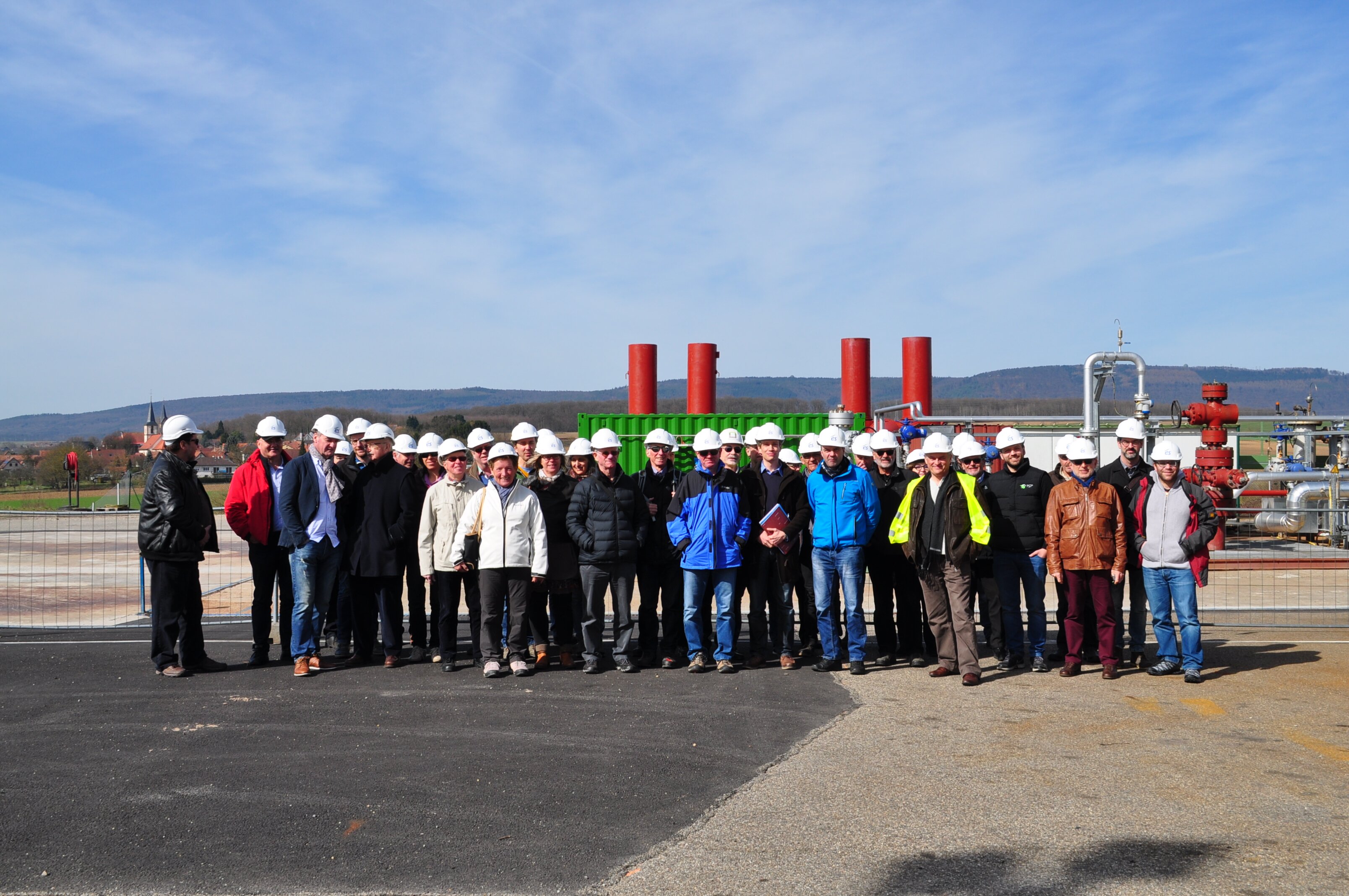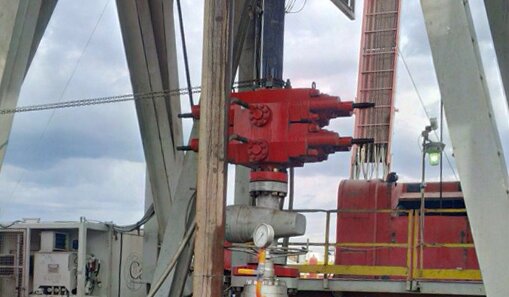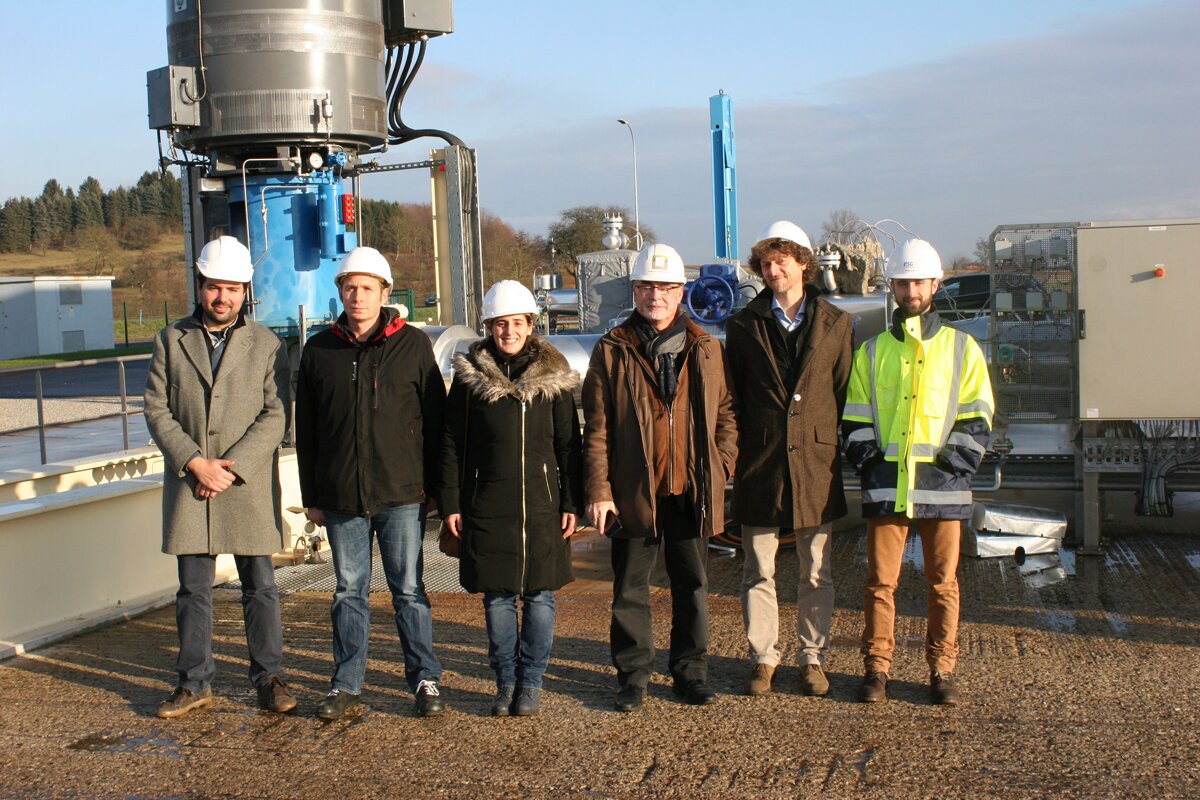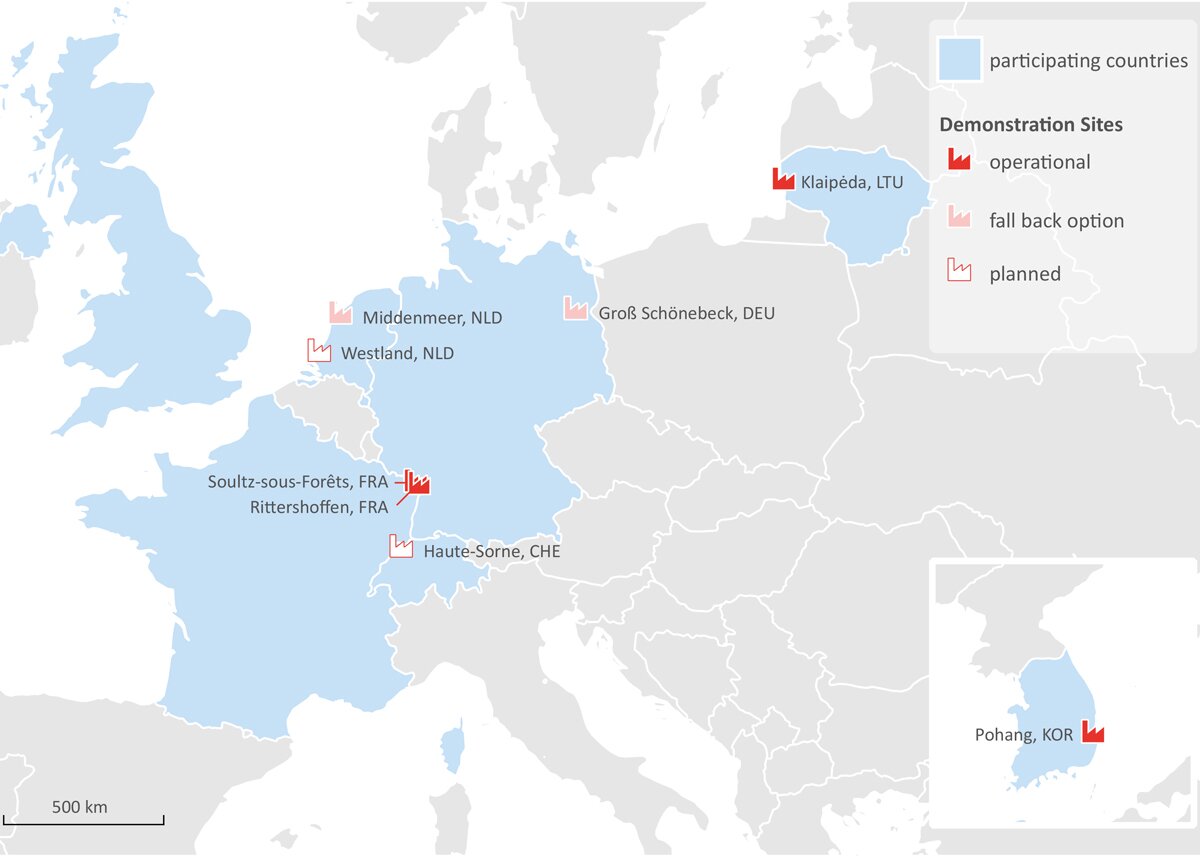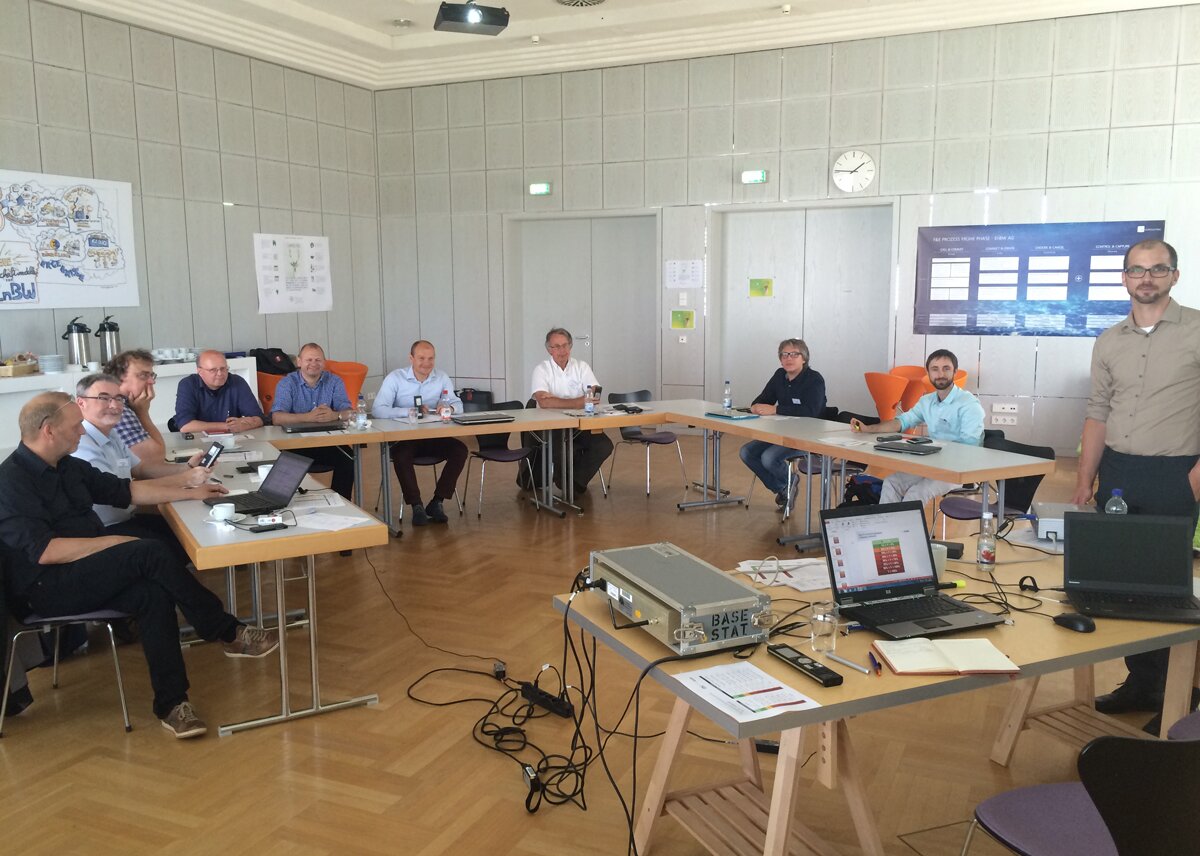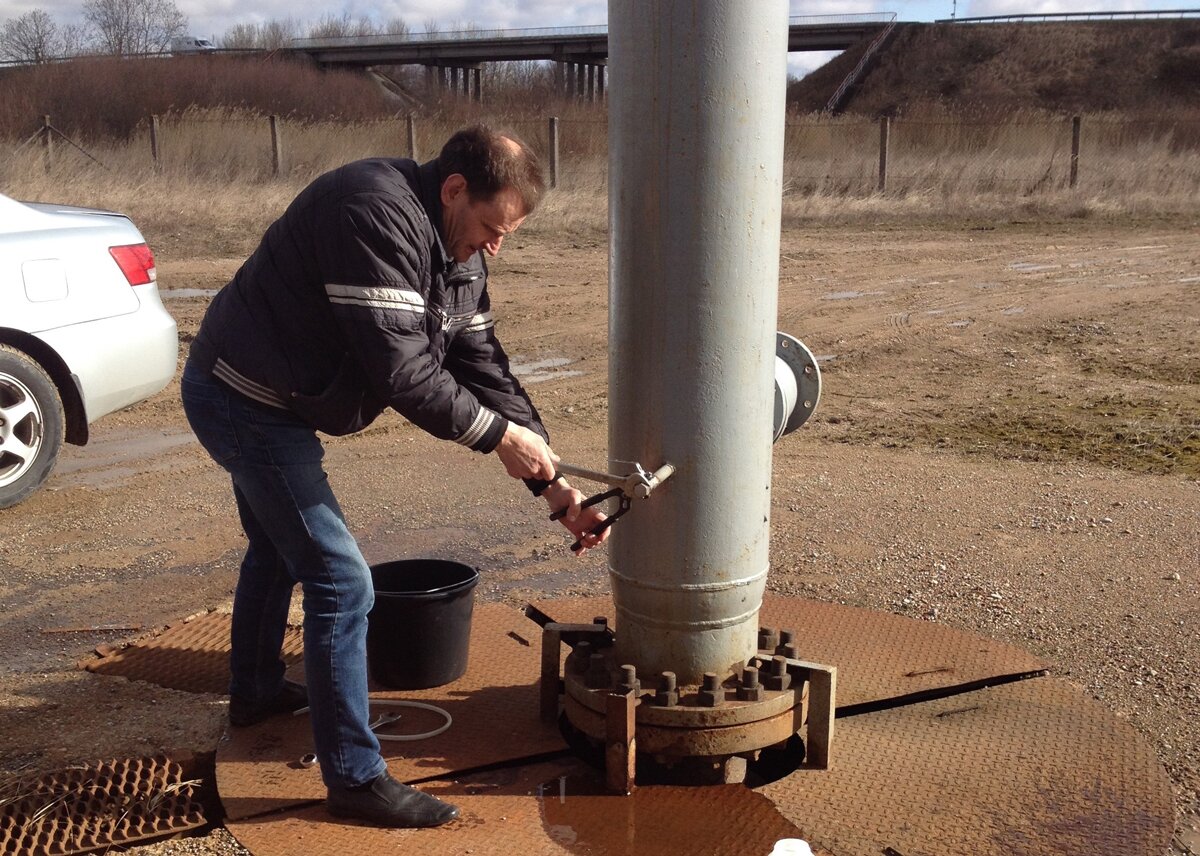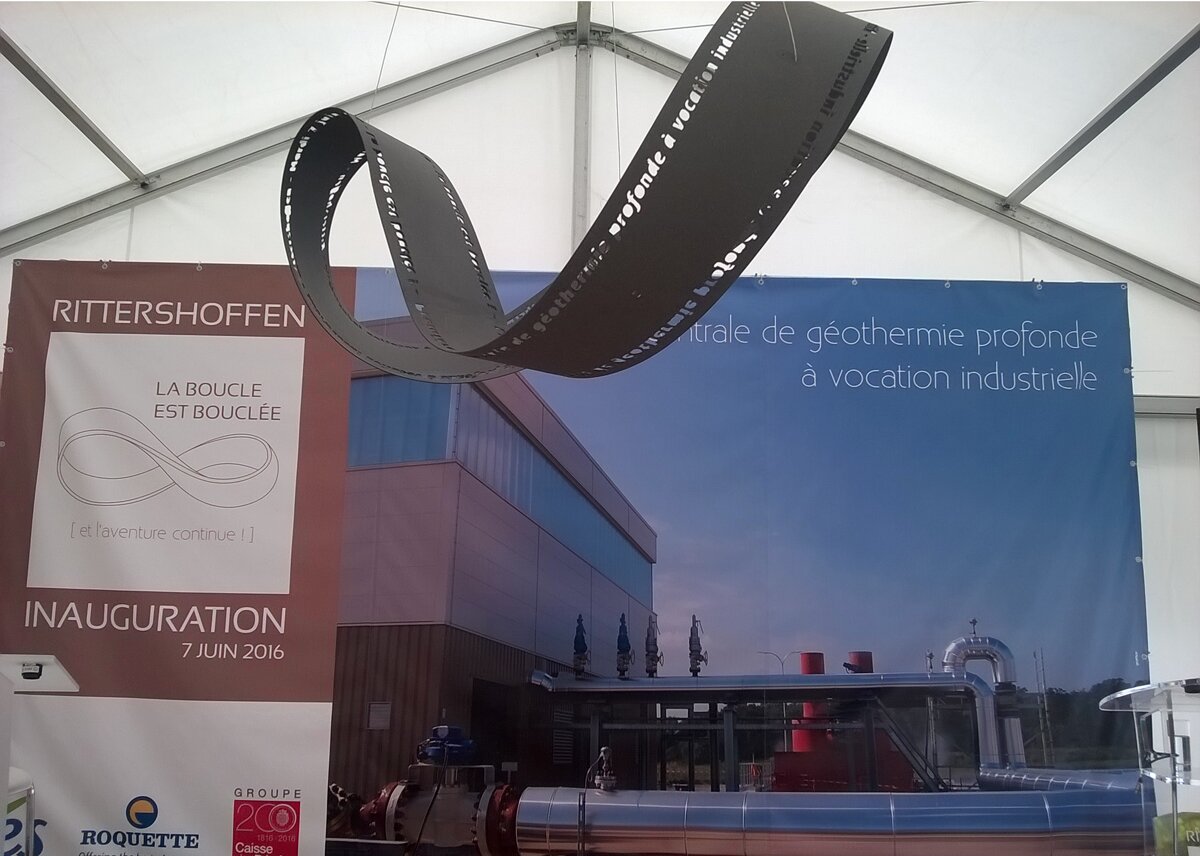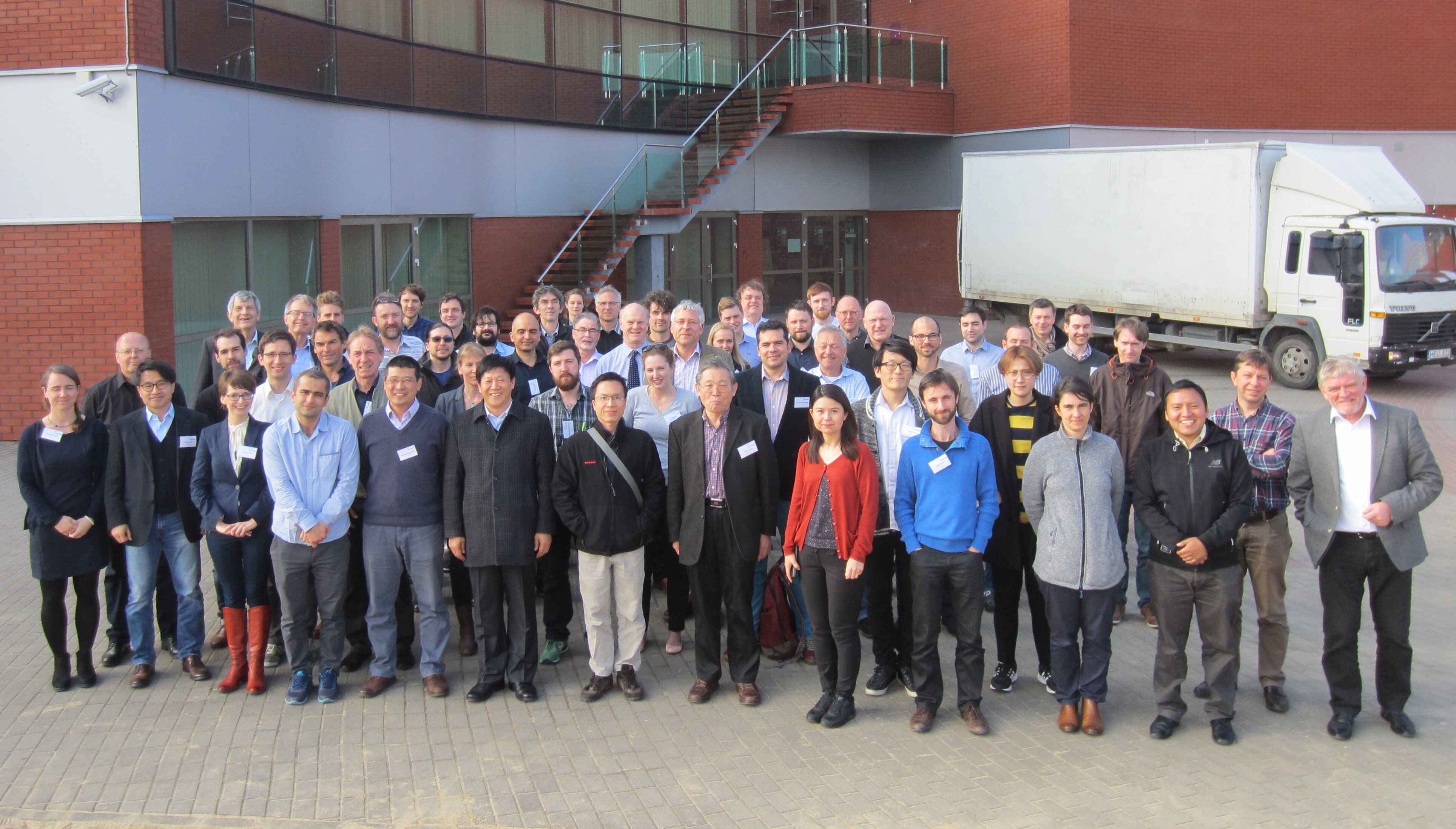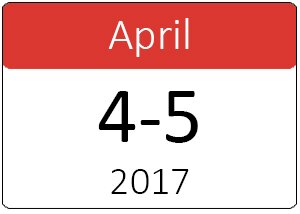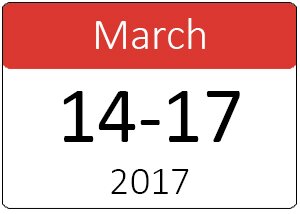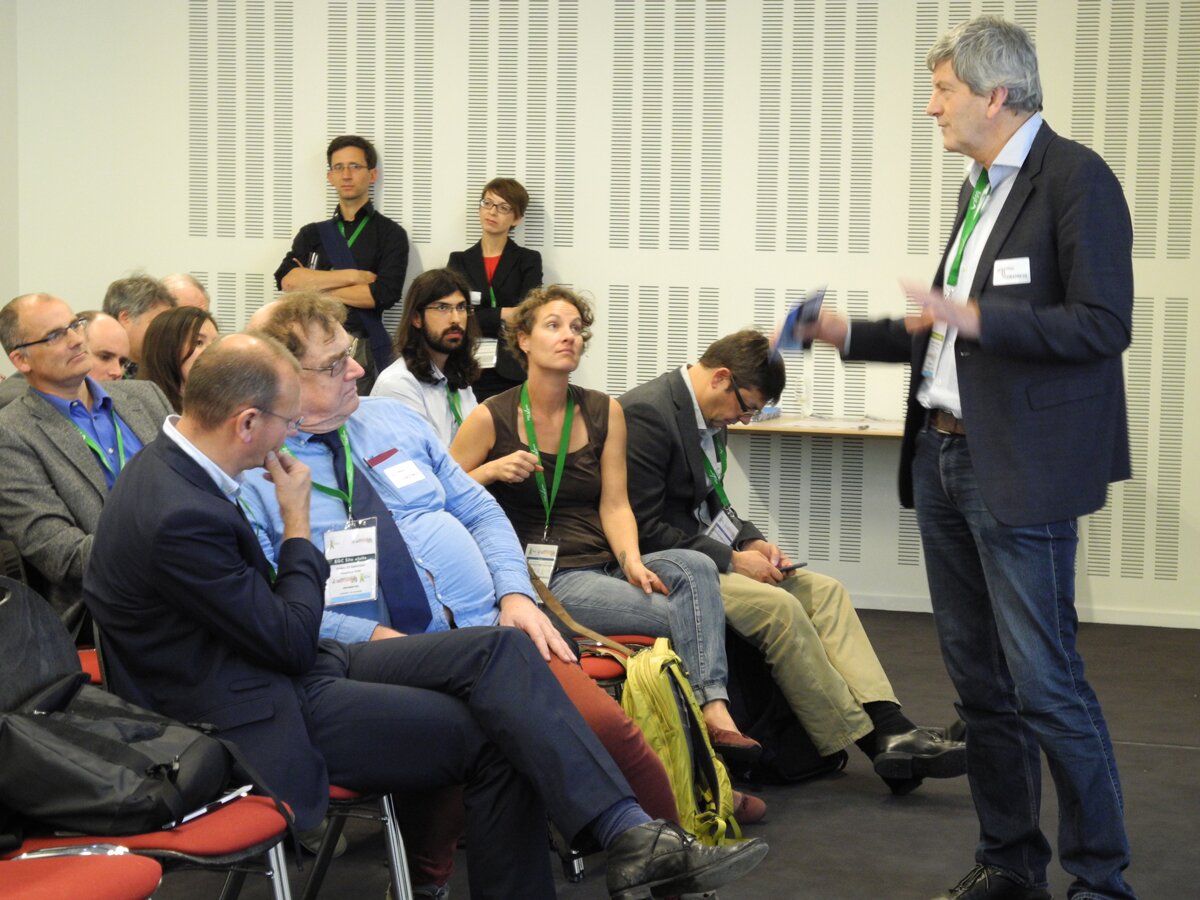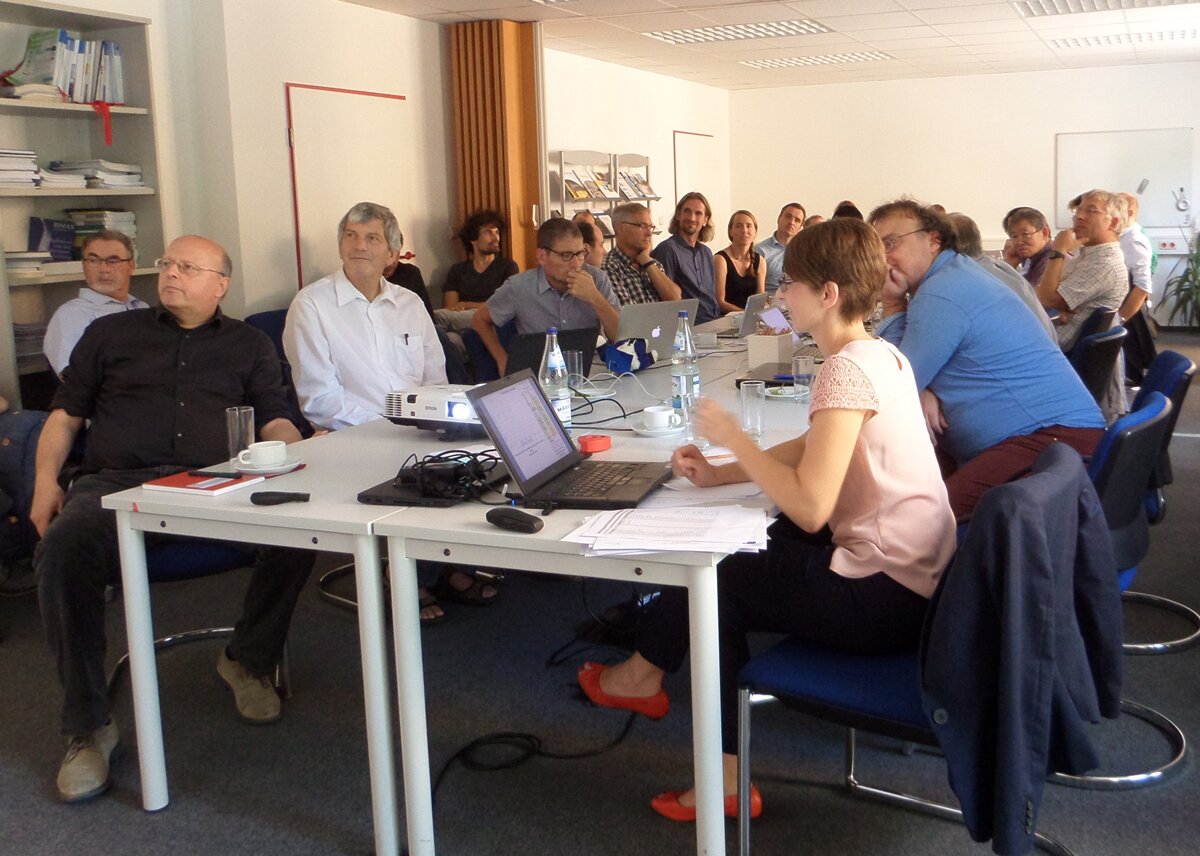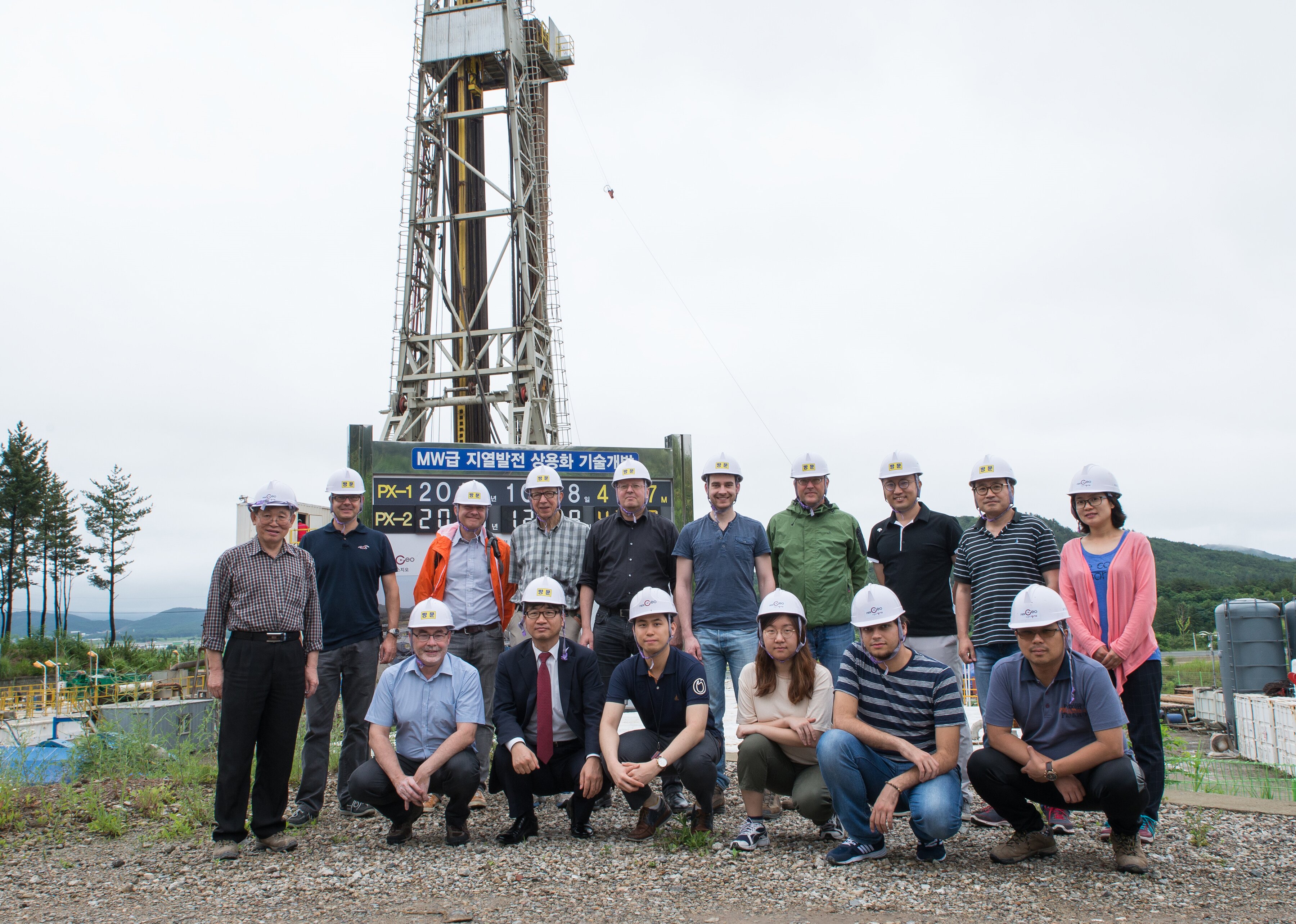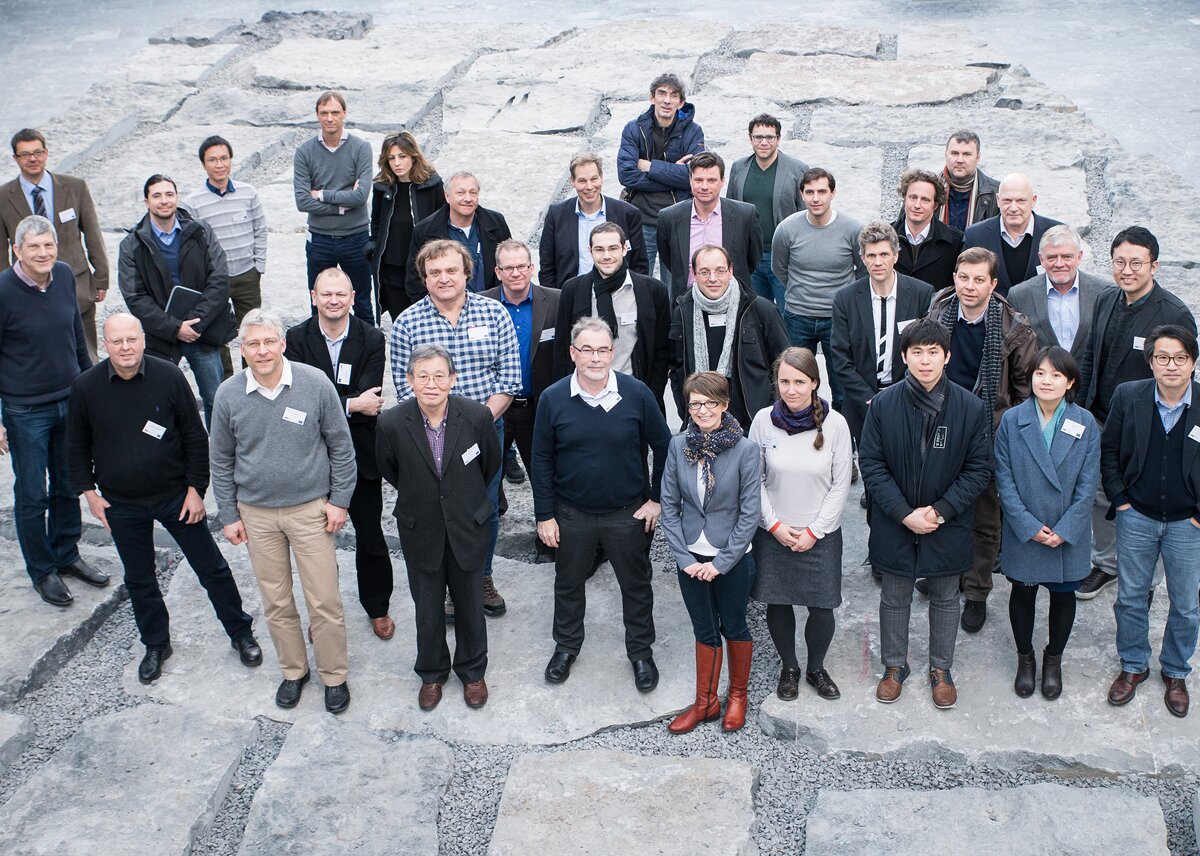News

Stimulation in Geldinganes
WP5's stimulation treatment in order to demonstrate cyclic soft stimulation is now ready to start in the well RV-43 in Geldinganes near Reykjavik, Iceland. Operational work starts with reaming / cleaning the well and a subsequent borehole logging. The stimulation begins with temperature and caliper logs followed by a borehole televiewer for inspection of potential intervals to set the packers since the proposed stimulation treatment includes zonal isolation of reservoirs sections followed by a multi-stage stimulation.
The seismic monitoring system was completely installed in August 2019 in cooperation with Reykjavik Energy (OR), GFZ and ETH and has since been in operation. The monitoring system includes several surface stations and the installation of GFZ’s geophone chain in a neighbouring well. The network is operated by ISOR. The traffic light system (TLS) was set up together with OR; in parallel, an advanced version (ATLS) was installed by ETH Zürich and will be adjusted with new incoming data from the stimulation stages.
In total, it is planned to stimulate 3 stages from the bottom of the well (ca. 1700 m), a mid interval (1300 m) and the upper interval (1100 m) with a straddle packer system. Each stimulation treatment is scheduled for approx. 4 days and includes flow back after each treatment.
In the end, an airlift test is scheduled to quantify the success of the whole stimulation campaign.
New article on harmonic pulse testing published
A new article titeled "Harmonic Pulse Testing for Well Monitoring: Application to a Fractured Geothermal Reservoir" was published in Water Resources Research by DESTRESS WP 5. It discusses Harmonic Pulse Testing (HPT) that aims to determine well and formation parameters such as wellbore storage, skin, permeability, and boundaries within the investigated volume. The advantage is that it does not require the interruption of well and reservoir injection/production before and/or during the test because it allows the extraction of an interpretable periodic signal from measured pressure potentially affected by interference. This makes it an ideal monitoring tool. Find out more about HPT in the article.
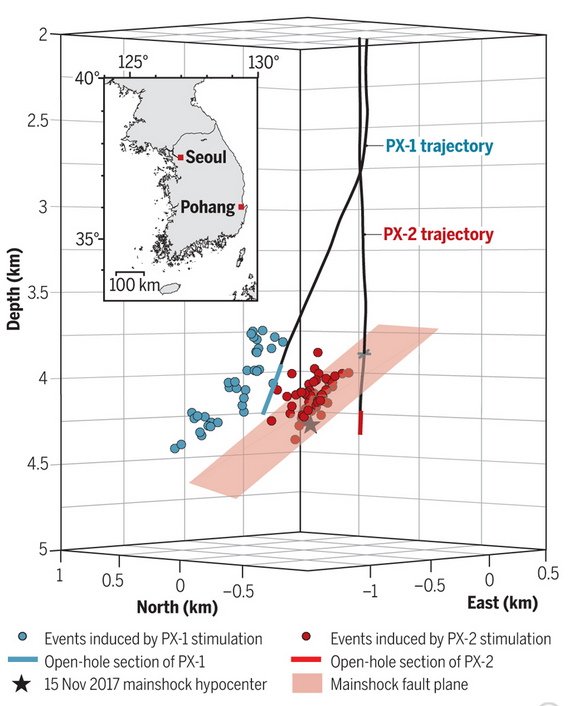
Pohang commission publishes lessons learned
The international commission, which analyzed the magnitude 5.5 Pohang earthquake, comes to an unequivocal conclusion: the nearby geothermal project has caused the damaging event through stimulations at borehole PX2. After having delivered a detailed report at hand of the South Korean government, the commission published a comprehensive summary in Science including lessons learned.
Access the Science paper “Managing injection-induced seismic risks”
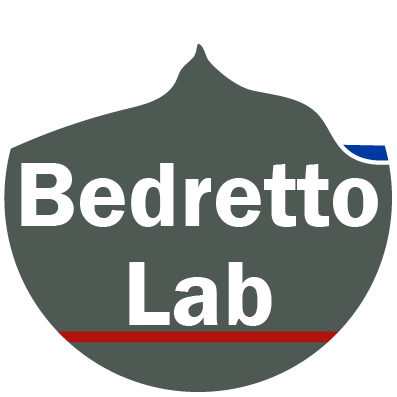
Inauguration of Bedretto Lab
The DESTRESS project in Bedretto aims to demonstrate that the construction of a heat exchanger that is sustainable over several decades can be planned and controlled with the aid of hydraulic stimulation processes. The experiments will be carried out on scales of several hundreds of meters. The larger scale implicates longer boreholes, which allow more realistic experiments to be carried out, applying different stimulation concepts.
- Which stimulation concepts are appropriate for enhancing the permeability by orders of magnitudes while minimizing induced seismicity?
- What are the relationships between the hydro-mechanical response, the stimulation concept, permeability creation, effective porosity, and induced seismicity?
- How can micro-seismicity be minimized?
- What are the heat exchanger properties of the reservoir?
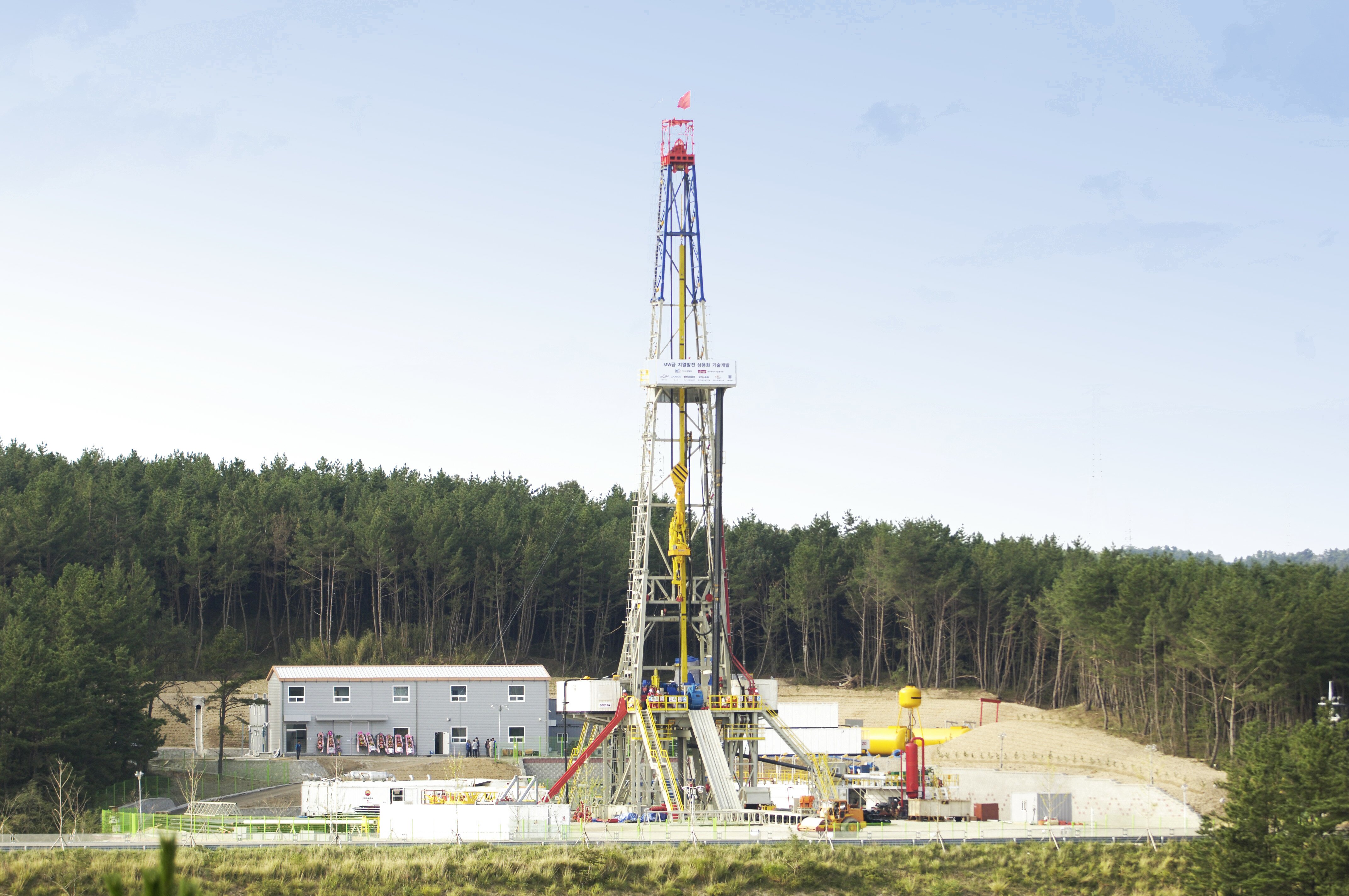
DESTRESS supporting the Pohang investigations
On 20 March 2019, the independent expert commission will release its report concerning the Pohang earthquake and its potential link to the nearby geothermal project. The event of magnitude 5.4 occurred on 15 November 2017, injuring about 80 people and causing damage to numerous buildings.
In August 2017, DESTRESS conducted a first soft stimulation treatment at the Pohang geothermal site. Experts from GFZ, GES, KICT, KIGAM, NexGEO, SNU, TNO, and UoG were involved. This treatment did not induce any seismic activity larger than magnitude 2.0. DESTRESS supported the seismic monitoring by the deployment of instruments. The project collected important data and has been given access to further information thanks to the partnership with the local site owner, NexGEO. However, the dataset available to DESTRESS is incomplete and less extensive than that to which the expert commission has been granted access.
DESTRESS has conducted various analyses scrutinising seismic, hydraulic, geophysical, and geochemical data in the area concerned. The results were made available to the expert commission. In November 2018, DESTRESS partners met for a workshop (see this news item summarizing the main findings) to discuss preliminary results of the work performed. At the recent annual meeting in Strasbourg, further findings were discussed. The focus laid on the potential for a triggered event. In case of triggered events, even small human activities can potentially accelerate the failure of a naturally pre-stressed fault inducing large earthquakes. However, especially, the two months gap between last injection activities and the damaging earthquake raises questions. The DESTRESS working groups provided potential explanations including diffusion processes or slow chemical reactions. DESTRESS partners are committed to continue to work on this highly unprecedented event. All elaborations will be published in a special issue in Geothermics. In addition, DESTRESS plans to release a report on lessons learned, summarising the main findings on which to base future deep geothermal projects. In the meantime, an overview of existing publications and contributions of DESTRESS partners linked to the Pohang earthquake is available in the result section.
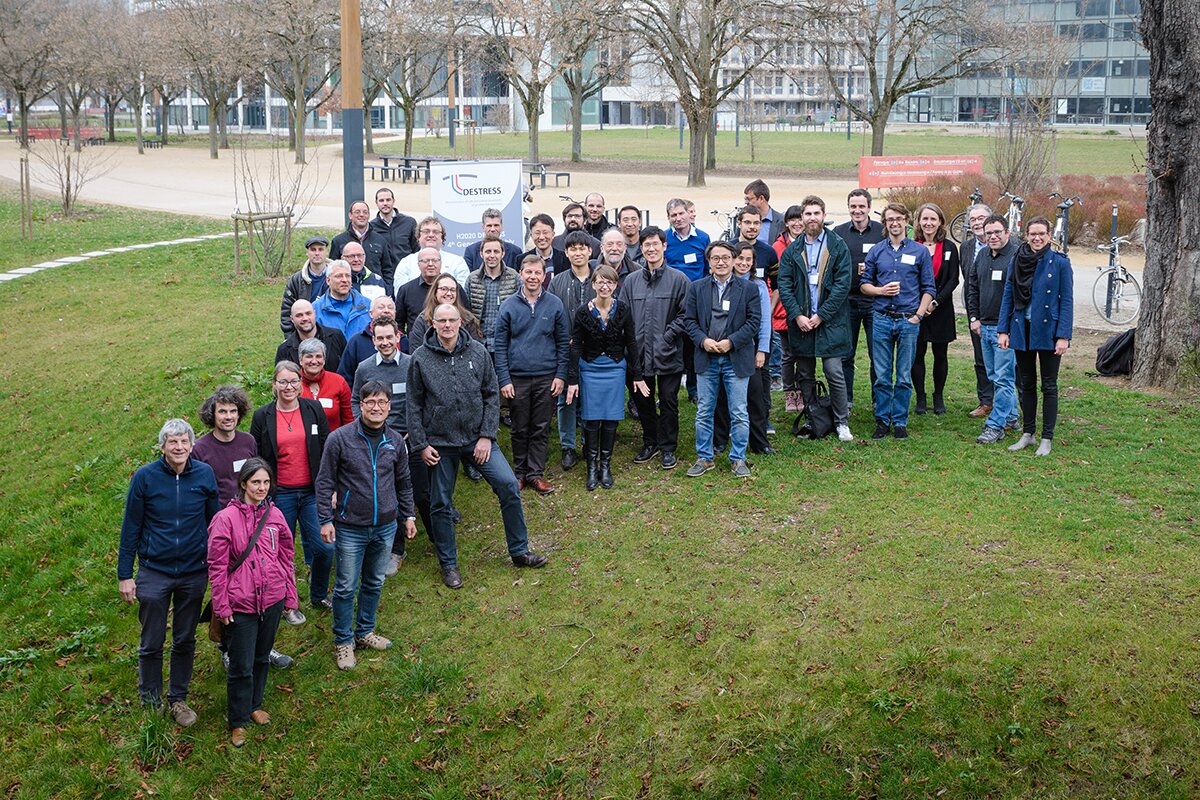
Successful 4th General Assembly in Strasbourg
From 18 to 20 February 2019, DESTRESS project members met in Strasbourg, France, for the 4th General Assembly. The event was hosted by the University of Strasbourg. The programme included a workshop on the M5.4 earthquake in Pohang, South Korea, on the first day of the meeting where participants discussed results and lessons learned. A short summary of this day will be made available in the upcoming weeks. On the second and third day, the more than 50 project members presented achievements, current challenges, and discussed open questions. In the spotlight were further the upcoming activities at our new test sites in Island, Hungary, and the Netherlands.

EURO 2019 Abstract Submission now open!
The 13th EURO-Conference on Rock Physics & Geomechanics will be held in 2019 in Potsdam, Germany. The overarching theme of the conference, “Rock fracturing and fault activation: experiments and models”, will provide a unique opportunity for international researchers and industry experts to discuss recent results and developments of rock fracturing and fault activation experiments, at laboratory, mine, and field scale, as well as related modeling efforts.
Abstract submission opened on 1 December 2018 and is still open until 15 April 2019. Find more information here.

DESTRESS at EGPD
The European Geothermal PhD day (EGPD) is intended to connect PhD researchers from all over Europe working in the field of geothermal energy and will celebrate its 10th anniversary at its original host institution, the German Research Centre for Geosciences (GFZ), Potsdam. Every year, between 50-80 young scientists from various research fields such as geology, geochemistry, rock mechanics, geophysics and mechanical engineering come together to share knowledge and experience on this promising energy resource.
Over the last decade, this venue was held in many different countries including Iceland, the Netherlands, Italy, Hungary, Switzerland and Germany. Next year’s meeting will be held from 25th - 27th of February 2019 at the Albert Einstein Science Park Telegrafenberg, Potsdam. Participants at any stage of their PhD studies who are interested in presenting their work, getting feedback from fellow PhD students or who would like to explore future directions in their research and careers are welcome to join the 10th EGPD.
The conference programme will include keynote lectures from experienced researchers and academics about recent scientific and technical developments in geothermal energy, as well as socio-economic aspects, a poster session with drinks and snacks, a conference dinner and a guided tour to the geothermal underground laboratory and power plant of Groß Schönebeck, one of DESTRESS's fall back options.
The Pohang earthquake under DESTRESS’s scrutiny
On 15 November 2017, an earthquake with a magnitude of 5.4 occurred near Pohang in South Korea. Its proximity to the nearby, now closed geothermal project and its shallow depth, triggered numerous national and international investigations with DESTRESS members contributing. In a workshop in September, the DESTRESS teams involved discussed their analyses and first results.
read more
Ready to start soft stimulation in Mezőberény
Anthropogenic or not? Investigating the magnitude 5.5 Pohang earthquake in South Korea
A recently published paper in Science, written with contributions from DESTRESS partners, explores the potential link between magnitude 5.5 (Mw) earthquake in South Korea and the nearby geothermal project. If proven to be anthropogenic, it would be the largest earthquake known to have been associated with the exploitation of deep geothermal energy.
read more
Sad news from Glasgow
Paul Younger, one of the initiators of DESTRESS, passed away last week-end. He died after serious illness peacefully surrounded by his family. Paul will remain in the memory of all DESTRESS members, not only because he was the one who defined the acronym of our project. His death is a big loss and we will miss Paul at many fronts. Our thoughts are with his wife and family.
DESTRESS met for a fruitful exchange in Glasgow
From 3 to 6 April 2018, the DESTRESS community met for four days in Glasgow. The programme included the 3rd general assembly with the progress meeting and executive and advisory board sessions as well as the midterm conference. 50 project participants took part in the internal meetings and presented the status-quo, results and upcoming work for their tasks and work packages. Furthermore, the whole consortium discussed critical topics and challenges and exchanged ideas for future steps to be taken.
read more
In-situ stress estimation in geothermal reservoirs
The ability to estimate stresses in deep boreholes is limited because collecting data is challenging in these depths. Thus, it is desirable to combine various stress measurement methods and follow a set of steps to construct a reliable rock stress model. The new DESTRESS report presents best practices for estimating in-situ stress in geothermal reservoirs.

Geothermal reservoir characterization and well testing
After drilling a geothermal well into a reservoir, one needs to characterize its properties and assess the well properties. This knowledge is essential for efficient and fast decisions, for example to configure soft stimulation treatments, as well as for the design of surface facilities. Read more in our latest best practice report.
Logging programme in Soultz-sous-Forêts
In the framework of work package 4.3, which is dedicated to the realization of chemical injection tests into well GPK4 in Soultz-sous-Forêts, a logging programme has been designed to characterize the status of both the cased and the open-hole sections of the well, prior to any injection. The following measurements will be performed: casing integrity (diameter, thickness) and flow logs in the cased and open-hole sections (observation of potential leaks in the casing and main flow inlets/outlets in the open-hole). The operations, planned to start at the end of January, should help to properly design the future chemical injection.
“Geochemistry and geothermal fluids” workshop in Miskolc
The first joint cross topic workshop on “Geochemistry of geothermal fluids” took place from 26 to 27 of October 2017 at the University of Miskolc in Hungary. About 35 people from ten European countries attended the workshop. Most of them are involved in at least of one the seven EU Horizon 2020 projects that coordinated the workshop.
read more
Magnitude 5.4 earthquake in South Korea
On 15 November 2017 at 05.29 UTC (14.29 local time) an earthquake with a magnitude of 5.4 occurred near Pohang in South Korea. This earthquake is the second-largest on record in Korea after the magnitude 5.8 Gyeongju event, which occurred in 2016, 40 km from Pohang. It triggered numerous aftershocks in the following months.
There may be concerns regarding a connection between the recent earthquake and the nearby Pohang geothermal project due to the close proximity and shallow depth of the earthquake. Analysis is underway regarding the injection activities in the two deep boreholes (4.3 km and 4.2 km) at Pohang.
Following the three previous hydraulic stimulations at this site, the DESTRESS team, composed of international experts, conducted hydraulic stimulation (soft stimulation as we call it) in August 2017, followed by flowback of 100% of the injected water (see the DESTRESS newsletter). This treatment did not induce any seismic activity larger than magnitude 2.0. It was followed by additional injections, which ended on 18 September, two months before the recent Pohang earthquake. No larger seismic events were observed during this treatment, either.
Nonetheless, the DESTRESS team is willing to collaborate with Korean partners and authorities to investigate the possible link between the 15 November earthquake and the previous injection activities at Pohang.

Drilling in Westland (NL) started
On 6 November drilling started in Trias Westland. It will be the deepest ever performed drilling in the Netherlands. Based on a daily advance of 50 meters per day, the Buntsandstein reservoir should be reached around Christmas. Read more

Harmonic Pulse Testing as a Monitoring Tool for Enhanced Geothermal Systems
Harmonic pulse testing is a technology that has similar capabilities as regular well testing. It intends to determine hydraulic parameters such as transmissivity, wellbore storage, skin and storativity. In comparison to well testing, pulse testing has some important advantages: the deployment is simple, it can be performed during ongoing operations and it can be used as a monitoring tool. Read more on pulse testing in our best practice report.
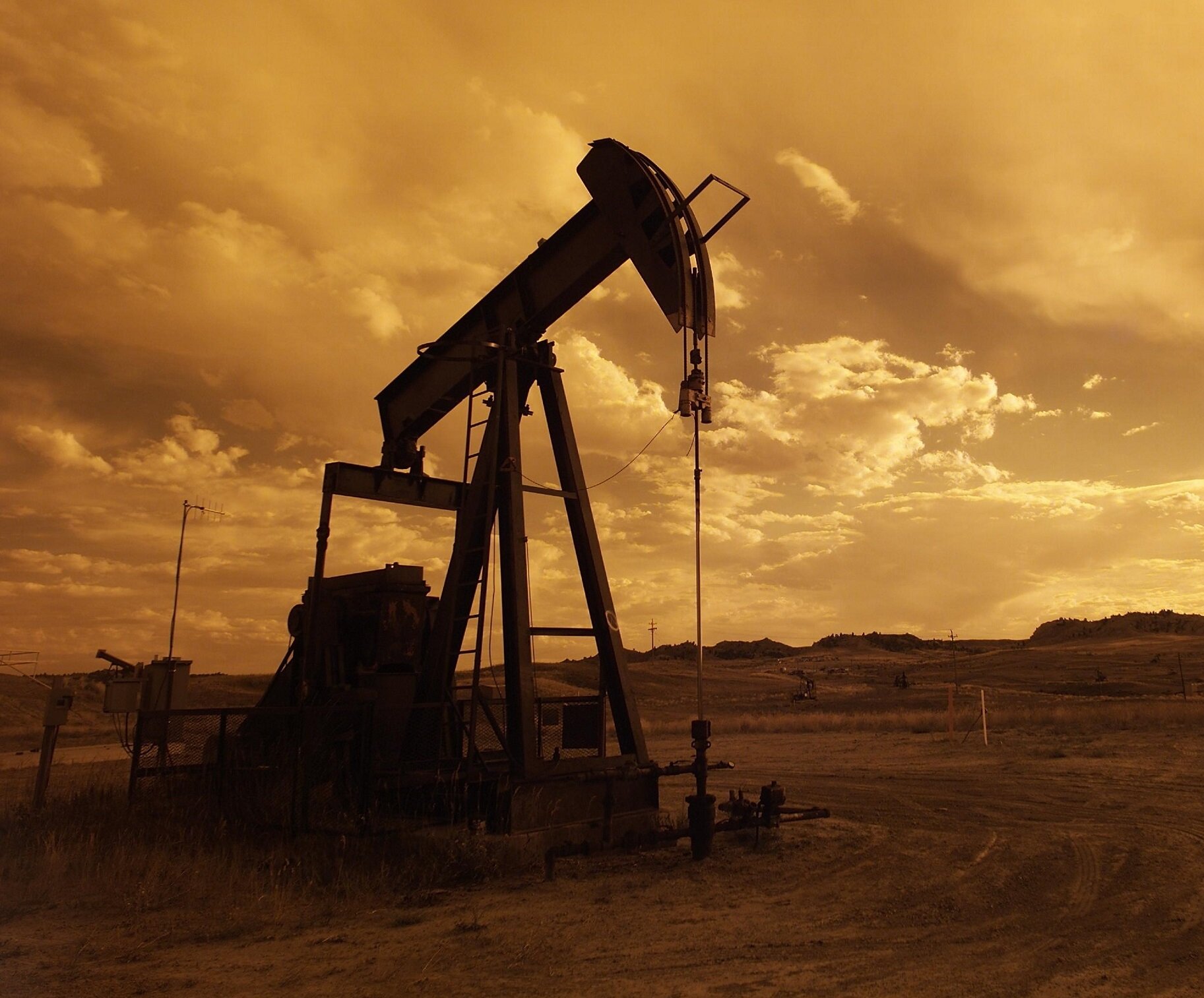
How to Drill and Operate a Well?
Drilling a well is more than just boring into the ground. A well designer must know before drilling what is expected from the wellbore in order to determine for example its hole size diameter or possible stabilization measures. Therefore, our fourth best practice report presents a guideline to successfully drilling and operation wells. Read the full report here.

Best Practice Report: the Importance of Geo- and Hydrochemistry
To successfully run a geothermal plant, it is crucial to know how fluids, rock minerals and gases interact in the underground. A poor understanding of those processes can result in corrosion of plant, clogging of wells and reservoirs and may even cause environmental problems. Our new best practice report deals with the question how to design a geo- and hydrochemical sampling campaign for a geothermal programme. Read the full report here.

Best Practices for Risk Assessment in Geothermal Projects
The long timeline of a geothermal project with the drilling, construction and operation phase poses numerous risks such as legislation, accidents and public acceptance. Therefore, risks should already be assessed in the beginning of a project. Key to a reliable risk assessment are expert interviews or, wherever available, historical data. Our new best practice report deals in more detail with the topic risk assessment.
Joint Efforts to Strengthen Geothermal Energy
Geothermal heat is a promising source to enrich and significantly contribute to the renewable energy mix in a long-term perspective. To foster the use of geothermal energy in a secure, clean and efficient way, the European Commission (EC) supports twelve projects within the Horizon 2020 Programme (H2020) and pursues one project of the former 7th Framework Programme (FP7). This brings together almost 20 countries and numerous stakeholders, providing a wide range of knowledge and expertise to strengthen the use of geothermal energy.
read moreFirst Best Practice Report Available
An important achievement of DESTRESS is the compilation of best practice reports. New techniques, innovations, or crucial experiences gained within DESTRESS are made available to an interested audience. Several reports will be published at irregular intervals until the end of the project.
read moreSite Visit in Alsatian Geothermal plants for Citizens of the Canton Jura
On March 11th, a visit of the geothermal power plants of Soultz-sous-Forêts and Rittershoffen was organised by Geo-Energie Suisse SA (GES) and Électricité de Strasbourg Géothermie (ÉSG) for citizens of the Canton Jura, Switzerland, where GES is planning its Haute-Sorne project.
read moreSystematic Approach for Techno-Economic Evaluation Developed by WP2
Is soft stimulation worth its effort? Is it wise to use soft stimulation in geothermal exploration from an economical point of view? Which risk factors and uncertainties do we face while performing soft stimulation and how do they affect our project?
read moreQualitative Analysis Shows Media Frames of Deep Geothermal Energy
Olivier Ejderyan (ETH Zurich) conducted a qualitative media analysis of 115 articles about deep geothermal energy (DGE) in three French-speaking Swiss newspapers within task 3.3 "Risk Governance".
read moreSuccessful Hydraulic Stimulation in Pohang
Currently there are two deep boreholes in Pohang: PX-1 at 4.2 km and PX-2 at 4.3 km. The first and second hydraulic stimulations have been carried out in January and February 2016 in PX-2 and in December 2016 in PX-1.
read moreAcceptance of Geothermal Energy in the Spotlight of Social Science Studies
The social context of geothermal energy projects matters as participants of the first DESTRESS Workshop on Social Sciences highlighted at the end of January in Strasbourg. A good example is the acceptability of geothermal energy production in the Alsace (France), which is rather high due to positive experiences with extensive oil drilling in the last decades.
read moreList of Topics for Future Monitoring Has Been Compiled
In the framework of the WP3.4, entitled to "Non-standard risk monitoring", teams from the Centre for Early Warning system (CEWS) at GFZ Potsdam and ESG met at the Soultz site on 12 December 2016. After ESG introduced the Soultz-sous-Forêts and Rittershoffen geothermal sites, GFZ presented an overview of their expertise in real-time monitoring capabilities, early warning systems for risk assessment and vulnerability studies.
read moreStatus Quo of Demonstration Sites
To demonstrate the DESTRESS concept, six different sites with access to a reservoir by means of geothermal wells have been chosen. About 9 month after the start of the project, we present here the first status quo report on the demonstration sites.
read morePublication "Hydrothermal characterization of wells GRT-1 and GRT-2 in Rittershoffen, France"
The wells GRT-1 and GRT-2 drilled in 2012, respectively in 2014, offer a unique opportunity to gather highquality datasets on a deep geothermal system in the Upper Rhine Graben at the transition between the Buntsandstein sandstone and the Palaeozoic granite basement.
read moreGeothermal Energy – A Community Effort
Stefan Wiemer and Michèle Marti, both Swiss Seismological Service / ETH Zurich, on DESTRESS at the SCCER-SoE-Blog.
read moreTop 10 List of Possible Risks for Soft Stimulation Compiled
One aim of DESTRESS is to bring together social and economic challenges related to soft stimulation. An initial step for this task is to investigate possible risks: even though soft stimulation aspires to reduce the environmental impact of a reservoir enhancement, not every risk can be excluded.
read moreFirst Efforts to Address Challenges in Klaipeda Geothermal Site (WP4)
In March and July 2016 geochemists, reservoir engineers and rock mechanic experts from GFZ Potsdam visited the site to sample fluids, filter residual and core pieces for analysis in the laboratory.
read moreGeothermal Energy for Starch Production – Rittershoffen on Track
On Tuesday, 7th June 2016, Ségolène Royal, the French Minister of the Environment, Energy and Marine Affairs, has inaugurated the brand new Rittershoffen geothermal plant located in Northern Alsace, France.
read moreEvents
13th EURO-Conference on Rock Physics and Geomechanics - The Guéguen Conference
The 13th EURO-Conference on Rock Physics and Geomechanics - The Guéguen Conference will take place from 2 - 6 September 2019 in Potsdam, Germany. The overarching theme of the conference, “Rock fracturing and fault activation: experiments and models”, will provide a unique opportunity for international researchers and industry experts to discuss recent results and developments of rock fracturing and fault activation experiments, at laboratory, mine, and field scale, as well as related modeling efforts. Registration is still open until 15 July 2019. Find more information here.

First EAGE/IGA/DGMK Joint Workshop on Deep Geothermal Energy
This workshop that aims to investigate geothermal energy’s current and future role in the energy transition and is organized by members of the geothermal industry and the oil and gas industry will be held between 08 - 09 November 2018 in Strasbourg, France.
The workshop calls for abstracts on a variety of topics that can be found here. Abstracts can be submitted until 30 September 2018.
Find detailled information here.
6th European Geothermal Workshop
This year's EGW will be held in Strasbourg, France on October 10 and 12, 2018. For more information, including the workshop programme, please visit their website. The deadline for registration and abstract submission is September 21, 2018. You can register for the workshop here. Conference details (including location, access information, and field trip details) will be sent to all participants once registration has closed.

Join our Mid-Term Conference in Glasgow
DESTRESS will meet in Glasgow for its midterm conference this spring. If you would like to join us, please register yourself here until 21 March 2018. The participation is free of charge. Read more.
What makes geothermal projects a success? Second DESTRESS workshop at GeoTHERM Offenburg
Even though geothermal heat is a promising source to enrich and contribute to the renewable energy mix, it is not risk-free. The question therefore is: what makes a geothermal project successful? ...
read more3rd Access Programme: Joint Horizon 2020 event of DESTRESS and DEEPEGS
In the framework of the third DESTRESS access program ES-Géothermie organized two geothermal site visits on the 11 and 14 October 2017. These events, framing the European Geothermal Workshop 2016 in Karlsruhe, were a great opportunity for participants to discover two enhanced geothermal system plants in operation located in the French part of the Upper Rhine Graben.
read moreFruitful and Demanding Get-Together at the 2nd General Assembly
Travelling to the General Assembly in Klaipeda, Lithuania, was quite a challenge for many participants. But productive sessions and face-to-face encounters on the "working side" as well as good food and even sunshine on the "leisure side" made the journey more than worthwhile.
read more2nd DESTRESS Access Programme in Klaipeda, Lithuania
DESTRESS will hold a joint project workshop together with the EU-project SURE concerning the stimulation and drilling methods of the geothermal plant in Klaipeda. Furthermore, a site tour to the demonstration plant of GEOTERMA will be offered. Applications until 19 February.
read moreH2020 Workshop on Geothermal Research in Brussels
Early September, the project leaders and managers as well as the communication and dissemination managers gathered for a workshop on H2020 GeoThermal Research and Innovation Projects in Brussels.
read moreSchatzalp Workshop on Induced Seismicity in Davos
DESTRESS is partly sponsoring the 2nd Schatzalp Workshop on induced seismicity in Davos, Switzerland, between 14 to 17 March 2017. Ernst Huenges, project coordinator of DESTRESS, is one of the distinguised keynote speakers.
read more1st Stakeholder Event at EGC Strasbourg
DESTRESS is establishing a stakeholder network to facilitate the exchange of good practices and to exploit project results.
read moreFirst Progress Meeting in Potsdam
34 people, about a third of the all persons involved in DESTRESS, travelled from various European countries and Korea to Potsdam, Germany, for the first progress meeting in September 2016.
read moreFirst DESTRESS-Workshop: Korean-European Knowledge Exchange on EGS
In July 2016, researchers and experts in geothermal energy from Germany, France, Switzerland and Korea conducted the first DESTRESS stakeholder workshop. In Seoul they discussed recent progresses of different EGS projects.
read moreSuccessful Kick-off in Utrecht
DESTRESS has started. On Monday, 7th March 2016, the kick-off meeting took place in Utrecht/ in the Netherlands.
read more








